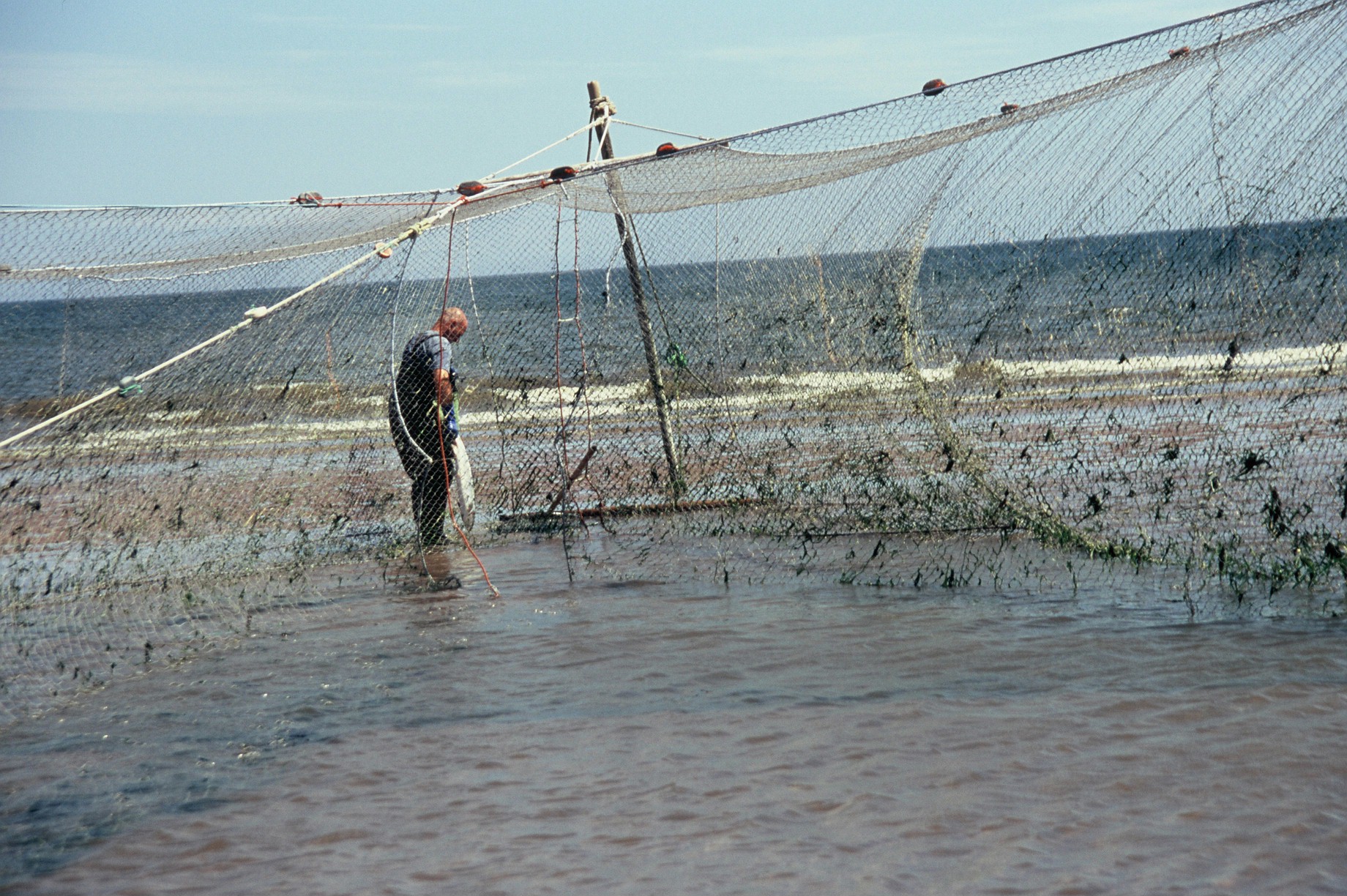IT MIGHT be the close season in Scotland for salmon fishing, but there was to be no festive season truce this year it seems in the on-going battle between anglers and commercial interests over conservation and exploitation of the iconic species.

The news that Brechin Angling Club in Angus is taking legal action against the Scottish Government over its alleged failure to follow a European Commission habitat directive to protect wild Atlantic salmon stocks in the River South Esk, is certain to raise the temperature further in what is an already-heated debate.
The formal complaint to the EC challenges the Government over its refusal, against the advice of its own scientists, to back the Esk District Salmon Fishery Board’s application for conservation measures restricting spring salmon netting.
Brechin AC also views with dismay a plan by the Government to extend the salmon netting season on the river from the end of August into the middle of September.
The River South Esk is an EC Special Area of Conservation (SAC) and the Scottish Government is obliged to implement appropriate management plans to address the threat posed by what are called mixed stock fisheries. These are coastal netting stations which indiscriminately capture fish destined for more than one river system.
Brechin AC, the second oldest club in Scotland, says it has been forced to take its case to Europe, “in the hope that we can prevent the damaging effects of increased netting on an already fragile water course.”
The Salmon & Trout Association (S&TA), the UK’s oldest and most respected game fish conservation organisation, is backing the complaint and says the legal move is “unprecedented.” Its environmental lawyer, Guy Linley-Adams cites “numerous breaches” by the Scottish Government in relation to the South Esk Directive.
He says these relate not only to spring salmon stocks which are in long-term decline, “But also later running fish that will be impacted by the unparalleled proposal by the Scottish Government to extend netting into September.”
The complaint also highlights what it says is the Government’s “general failure to establish appropriate management plans specifically designed for those SACs designated for Atlantic salmon to address the particular threat posed by what are termed mixed stock fisheries”.
The Esk rivers suffer from the effects of coastal netting run by Usan Fisheries which has been in the hands of the Pullar family for generations. They have heritable rights to net salmon along the east coast of Scotland from just north of Arbroath almost to Aberdeen. The Fishery captures fish headed for the Dee, Don Tay and both north and south Esk, among others.
Linley-Adams says: “The Scottish Government has placed far too much emphasis on the interference in the property rights of the netsmen and not enough on its obligations to protect the South Esk SAC’s spring salmon stocks.
I believe the European Commission will follow long-established European and indeed UK law that has repeatedly confirmed that the private property rights of individuals are subject to the wider need to conserve species and habitats in the wider public interest.”
The Scottish Government as signatory to the North Atlantic Salmon Conservation Organisation, as well as the EC Habitat Directives, has found itself in particular difficulty over its inability to deliver meaningful action on east coast netting.
The signs are that the Government and its scientists are again running for cover among statistics on the issue. A spokesman for the Scottish Government said: “Ministers have asked Marine Scotland officials to discuss with the net fisheries in the River South Esk arrangements for accessing genetic samples and fish for tagging and release for tracking.
“This is with a view to a possible licensed ‘catch and retain’ fishery from September 1-14 until 2012. Such a fishery would enable access to a reasonable sample of fish and genetic material throughout the commercial net fishing season to inform Marine Scotland Science’s statutory investigation of wild salmon and sea trout stocks.”
But time may be running out for rural affairs minister Richard Lochhead and his scientific team. He is being squeezed by commercial loyalties to the netsmen on the one hand and the powerful wild fish lobby on the other. S&TA trustee Hugh Campbell Adamson is chairman of the Esk DSFB as well as a Conservative MSP and riparian Esk owner.
Strengthening the game anglers’ case is the mounting threat from the Greenland and Fareose commercial fishers who are close to resuming their drift-netting for salmon because the Scottish Government has failed to close, or at least significantly limit, the mixed stock netting around our coasts.
Paul Knight, S&TA Chief Executive says: “We view the Esks case as an example of a national malaise. It is indicative of a lamentable lack of political commitment to protect a wild natural resource in line with our international obligations.”
With the Pullar family resolutely opposed to limiting their business and waving their legal rights under the noses of the wild fish lobby, the stage looks set for further lengthy acrimonious debate.
Meanwhile, some grim paradoxes remain. The Atlantic salmon, king of fishes, continues to be one of the most regulated, most scientifically-studied creatures on the planet. Its extraordinary life cycle is universally worshipped, yet much of its behaviour remains enigmatic.
It is ferae naturae, belonging to no-one, but the rights to catch it and sell it are traded for very large sums of money indeed and are, as we see here, the subject of bitter controversy.
Sadly, little in the latest challenge by Brechin AC and the S&TA seems likely to change its status any time soon as one of the most endangered species around.
Related Articles:
Why coastal netting seems destined to survive
Faroese threaten Scots . . .
Why it’s your turn to play politics with salmon
One Responses
If the River South Esk is an EC Special Area of Conservation (SAC), then why is anyone allowed to catch fish, whether by net or rod and line?